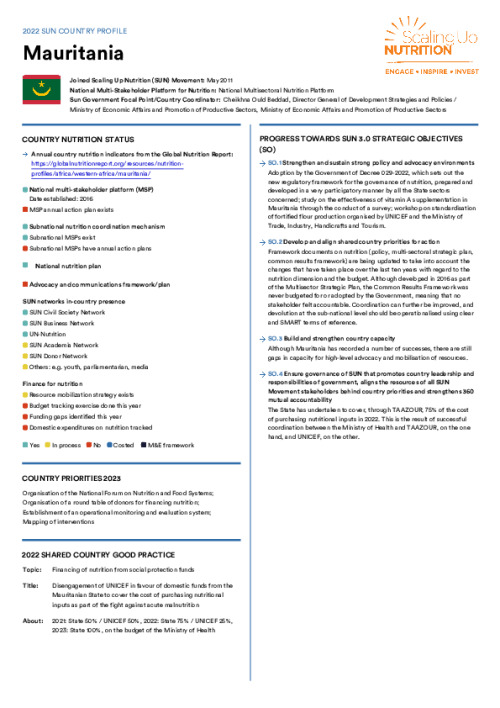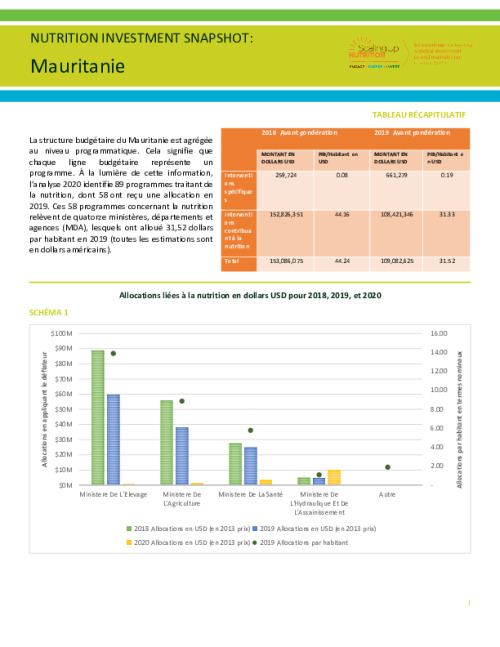
Mauritania
Joined Scaling Up Nutrition (SUN) Movement
May 2011
National multi-stakeholder platform for nutrition
National Multisectoral Nutrition Platform
Sun Government Focal Point/Country Coordinator
Cheikhna Ould Beddad, Director General of Development Strategies and Policies / Ministry of Economic Affairs and Promotion of Productive Sectors, Ministry of Economic Affairs and Promotion of Productive Sectors
Country nutrition status 2022
- Yes
- In process
- No
- Costed
- M&E framework
National multi-stakeholder platform (MSP)
National nutrition plan
Advocacy and communications framework/plan
Subnational nutrition coordination mechanism
SUN networks in-country presence
Finance for nutrition
Country priorities 2022
2022 Shared country good practice
Disengagement of UNICEF in favour of domestic funds from the Mauritanian State to cover the cost of purchasing nutritional inputs as part of the fight against acute malnutrition
Financing of nutrition from social protection funds
2021: State 50% / UNICEF 50%, 2022: State 75% / UNICEF 25%, 2023: State 100%, on the budget of the Ministry of Health
Progress towards SUN 3.0 Strategic Objectives (SO)
Adoption by the Government of Decree 029-2022, which sets out the new regulatory framework for the governance of nutrition, prepared and developed in a very participatory manner by all the State sectors concerned; study on the effectiveness of vitamin A supplementation in Mauritania through the conduct of a survey; workshop on standardisation of fortified flour production organised by UNICEF and the Ministry of Trade, Industry, Handicrafts and Tourism.
Framework documents on nutrition (policy, multi-sectoral strategic plan, common results framework) are being updated to take into account the changes that have taken place over the last ten years with regard to the nutrition dimension and the budget. Although developed in 2016 as part of the Multisector Strategic Plan, the Common Results Framework was never budgeted for or adopted by the Government, meaning that no stakeholder felt accountable. Coordination can further be improved, and devolution at the sub-national level should be operationalised using clear and SMART terms of reference.
Although Mauritania has recorded a number of successes, there are still gaps in capacity for high-level advocacy and mobilisation of resources.
The State has undertaken to cover, through TAAZOUR, 75% of the cost of purchasing nutritional inputs in 2022. This is the result of successful coordination between the Ministry of Health and TAAZOUR, on the one hand, and UNICEF, on the other.


